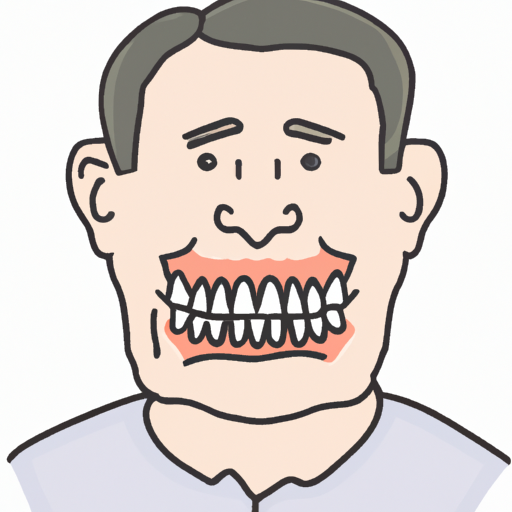
Dentures have long been a popular solution for individuals who have lost some or all of their teeth. Whether due to age, injury, or other dental issues, dentures offer a way to restore both functionality and confidence. However, with the wide range of denture options available today, it can be overwhelming to navigate through the various types, diagnosis, and treatment options. In this article, we will dive deep into the world of dentures, shedding light on the different types available, the process of diagnosis and treatment, as well as exploring the symptoms, causes, and considerations for opting for dentures. So, if you are someone who is considering dentures or simply curious about this dental solution, read on to gain a comprehensive understanding of dentures and how they can improve your quality of life.
Dentures are prosthetic devices used to replace missing teeth and restore oral functionality and aesthetics. They are custom-made to fit comfortably in the mouth and provide support to the surrounding oral structures. Dentures can significantly improve a person's ability to chew and speak properly while enhancing their smile.
There are different types of dentures available, depending on the specific needs of the individual. The two main categories are partial dentures and complete dentures. Partial dentures are used when some natural teeth remain, while complete dentures are used when all teeth are missing.
Partial dentures consist of replacement teeth attached to a gum-colored plastic base. They are secured in the mouth with the help of metal or plastic clasps that anchor to the remaining natural teeth. This type of denture not only fills the gaps created by missing teeth but also prevents the remaining teeth from shifting.
On the other hand, complete dentures are used when all teeth are missing. They consist of a full set of replacement teeth mounted on a flesh-colored acrylic base, which rests directly on the gums. Complete dentures can be either conventional or immediate. Conventional dentures are made after the teeth have been extracted and the gums have healed, while immediate dentures are made in advance and can be worn immediately after tooth extraction.
Diagnosing the need for dentures involves a thorough dental examination, including X-rays and impressions of the teeth and gums. The dentist will evaluate the overall oral health, the condition of the remaining teeth, and the bone structure of the jaw. Based on the findings, the dentist will determine the most suitable type
Exploring the Symptoms, Causes, and Considerations for Dentures
Dentures are a popular solution for individuals who have lost some or all of their natural teeth. They offer a way to restore the appearance and functionality of a healthy smile. However, before considering dentures as a treatment option, it is essential to understand the symptoms and causes that may lead to their necessity.
One of the most common symptoms that may indicate the need for dentures is tooth loss. Whether due to decay, trauma, or periodontal disease, missing teeth can significantly impact a person's ability to chew, speak, and smile confidently. Additionally, individuals experiencing difficulty in eating certain foods or suffering from chronic bad breath may also benefit from dentures.
The causes of tooth loss can vary greatly. Poor oral hygiene practices, such as inadequate brushing and flossing, can lead to the development of gum disease, which is a leading cause of tooth loss. Similarly, untreated tooth decay can progress to the point where extraction is necessary. Accidents or injuries that result in the loss of teeth are also common causes. Additionally, conditions like osteoporosis, which affects the density of bones, can weaken the jawbone and lead to tooth loss.
When considering dentures as a treatment option, several factors need to be taken into consideration. Firstly, a thorough diagnosis by a dental professional is crucial to determine the extent of tooth loss and the overall oral health of the individual. This assessment will help determine whether partial or complete dentures are more suitable.
Partial dentures are recommended when some natural teeth are still present. They
Integer posuere erat a ante venenatis dapibus posuere velit aliquet sites ulla vitae elit libero